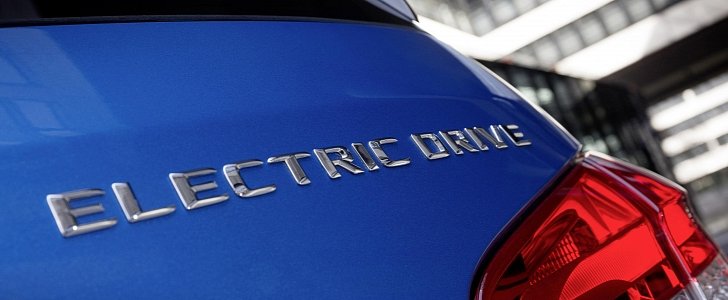A study made by the German branch of WWF has shown that the country is lagging in EV sales. The nature conservation group says that the country is "sleeping through the revolution of the automobile," and that it will be limited because of its current buying habits.
WWF, short for World Wide Fund for Nature, is one of the largest organizations in the world, and also extremely experimented in the field, and it has published a report on its website.
Sadly, it is in the language of Goethe, but the situation is not favorable for the country, and the nature conservationists want to help keep things safe for every living being on the globe, as well as any natural resource this planet still has.
The report was made and published with the help of Lichtblick, a green technology company, and it tracked the global state of electromobility. Germany was described as being in the backseat in the article on WWF’s website. In the past six years, the number of EVs on the road has risen by 20 times, but the country that happens to be Europe’s largest car market is lagging behind in sales.
In 2016, 29.3 percent of new cars registered in Norway were electrics, while the Germans only had 0.7 percent. This is a huge difference, and 11,000 electric cars in a country that registered 3.4 million new automobiles is like a drop in the ocean.
According to experts in the field, the Germans have particular expectations about motor vehicles, which involve driving as much as 1,000 kilometers (621 miles) without refilling their fuel tank. Evidently, this kind of driving is not something that happens everyday, but it is possible with a combustion-engined automobile and not with an electric one.
Meanwhile, electric vehicles get a range that sits between values close to 150 and 200 kilometers (93-124 miles), with a few notable exceptions such as Tesla products.
While range anxiety exists in other markets as well, it appears that German consumers have a certain “comfort zone” regarding the range of a vehicle and its performance level. Germany has exemptions for EVs, but critics say that these are not robust enough to matter.
Making EVs appealing to clients will be difficult in Europe's largest car market, but WWF warns that it should happen soon to help preserve the environment.
Sadly, it is in the language of Goethe, but the situation is not favorable for the country, and the nature conservationists want to help keep things safe for every living being on the globe, as well as any natural resource this planet still has.
The report was made and published with the help of Lichtblick, a green technology company, and it tracked the global state of electromobility. Germany was described as being in the backseat in the article on WWF’s website. In the past six years, the number of EVs on the road has risen by 20 times, but the country that happens to be Europe’s largest car market is lagging behind in sales.
In 2016, 29.3 percent of new cars registered in Norway were electrics, while the Germans only had 0.7 percent. This is a huge difference, and 11,000 electric cars in a country that registered 3.4 million new automobiles is like a drop in the ocean.
According to experts in the field, the Germans have particular expectations about motor vehicles, which involve driving as much as 1,000 kilometers (621 miles) without refilling their fuel tank. Evidently, this kind of driving is not something that happens everyday, but it is possible with a combustion-engined automobile and not with an electric one.
Meanwhile, electric vehicles get a range that sits between values close to 150 and 200 kilometers (93-124 miles), with a few notable exceptions such as Tesla products.
While range anxiety exists in other markets as well, it appears that German consumers have a certain “comfort zone” regarding the range of a vehicle and its performance level. Germany has exemptions for EVs, but critics say that these are not robust enough to matter.
Making EVs appealing to clients will be difficult in Europe's largest car market, but WWF warns that it should happen soon to help preserve the environment.

